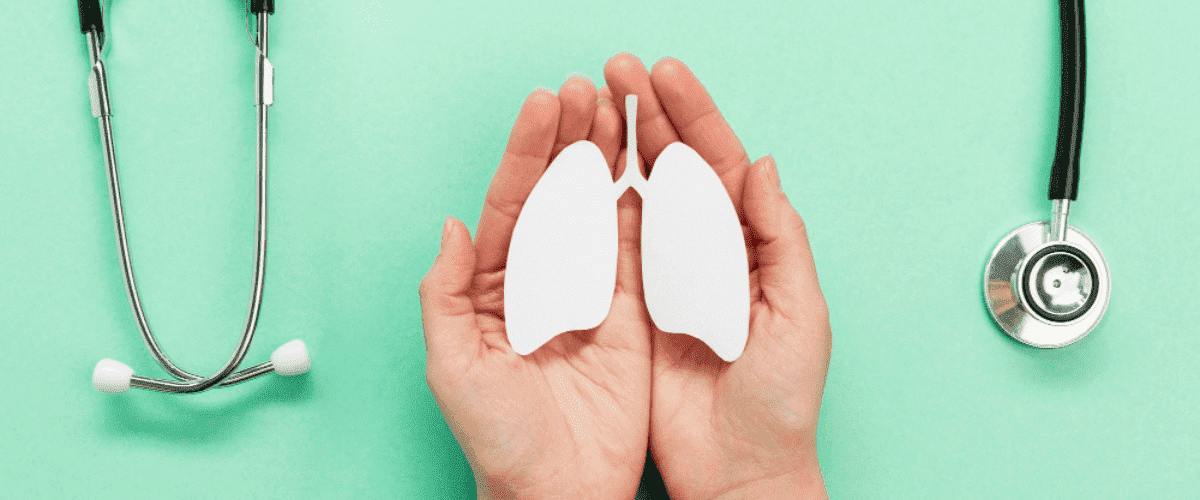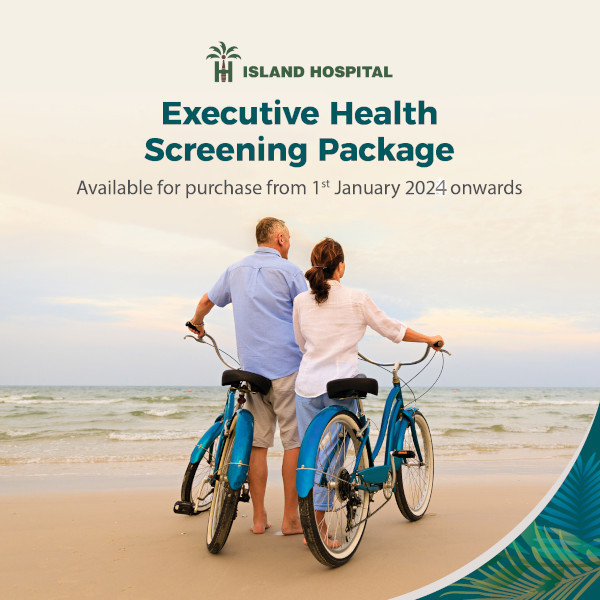
02 Aug Breathe Deep, Live Long: Your Guide on How To Prevent Lung Cancer
Breathe Deep, Live Long: Your Guide on How To Prevent Lung Cancer
By Island Hospital | August 2, 2024 12:00:00 PM
Medical Reviewer: Dr. Tang Weng Heng, Clinical Oncologist
Lung cancer remains a significant public health concern worldwide, accounting for roughly 12.4% of all cancer diagnoses. It is the most common form of cancer globally. However, the power to influence your risk lies within your grasp.
This article explores practical strategies for safeguarding lung health and reducing the chance of developing lung cancer.
By understanding key risk factors and incorporating simple lifestyle changes, you can take a proactive approach to lung wellness.
Understanding Lung Cancer
Lung Anatomy and Its Function
The paired, cone-shaped lungs, featuring a branching network of airways culminating in gas exchange sacs (alveoli), facilitate respiration by delivering oxygen to the bloodstream and eliminating carbon dioxide.
What is Lung Cancer?
Lung cancer occurs when cells in the lungs mutate and divide uncontrollably. These abnormal cells can form tumours that invade healthy lung tissue and disrupt lung function.
Types of Lung Cancer
There are two main types of lung cancer:
- Non-small cell lung cancer (NSCLC)
This is the most common type, accounting for about 80% of all lung cancers. It can arise from different lung cell types and grows slower than small-cell lung cancer.
- Small cell lung cancer (SCLC)
This type is less common but tends to be more aggressive and spread quickly.
Symptoms of Lung Cancer
Lung cancer symptoms can vary depending on the size and location of the tumour.
Early stages often have no noticeable symptoms, but as the cancer progresses, it can cause:
- A persistent cough that doesn’t go away
- Chest pain, especially that worsens with deep breathing or coughing
- Coughing up blood
- Fatigue
- Hoarseness
- Repeated lung infections such as pneumonia
- Unexplained weight loss
- Wheezing
However, the spread of lung cancer can also manifest through other symptoms including:
- Bone pain
- Facial or neck swelling
- Headaches
- Loss of appetite
Diagnosis of Lung Cancer
If you experience any of these symptoms, seeing a doctor is important to determine the cause.
Diagnosis of lung cancer may involve:
- Biopsy
A tissue sample is taken from the suspicious area and examined under a microscope to confirm the presence and type of cancer cells.
- Chest X-ray
This can reveal abnormalities in the lungs.
- CT scan
This provides a more detailed image of the lungs and surrounding structures.
- PET scan
This can help identify if cancer has spread to other body parts.
Hope to expand your knowledge on lung diseases? Check out this article on “Asthma: Is it all just in the head?”
Risk Factors for Lung Cancer
While there is no single cause of lung cancer, there are several risk factors that can increase your chances of developing the disease.
Here are the most common ones:
- Air pollution
- Asbestos exposure
- Family history of lung cancer
- History of lung disease
- Radon gas exposure
- Smoking
- Secondhand smoke
How to Prevent Lung Cancer?
1. Early Detection and Screening
Early detection is critical for lung cancer patients, significantly improving their chances of successful treatment and survival.
While no one-size-fits-all screening test exists, high-risk individuals can benefit from low-dose CT (LDCT) scans. These scans use minimal radiation to create detailed lung images, potentially revealing cancerous nodules at an early stage.
Early diagnosis allows for more effective treatment options and potentially reduces healthcare costs.
Research on blood tests and minimally invasive biopsy techniques for early detection is ongoing, offering promising options for the future.
Remember, a negative scan doesn’t guarantee the absence of cancer, so maintaining regular checkups and awareness of potential symptoms remains crucial.
2. Lifestyle Changes for Lung Cancer Prevention
Here are some key lifestyle changes you can incorporate to safeguard your lungs:
- Avoiding secondhand smoke
To minimise secondhand smoke, encourage smokers around you to quit. If quitting isn’t an option yet, kindly request smoking outdoors only. Choose smoke-free environments whenever possible.
- Diet and nutrition for lung health
Focus on a balanced diet rich in colourful fruits and vegetables. These natural sources provide essential vitamins and minerals.
- Exercise and physical activity
Regular exercise strengthens the immune system and helps the body use oxygen more efficiently. It also helps to manage weight and reduce inflammation, lowering the overall risk of cancer.
To breathe easier and fight lung cancer, aim for at least 30 minutes of moderate-intensity exercise most days of the week.
- Stress management techniques
Chronic stress can weaken your immune system, affecting your body’s ability to fight illness.
While the exact link to lung cancer is still being studied, managing stress can benefit your overall health. You can exercise regularly, meditate or do yoga, or find activities you enjoy to promote your overall well-being!
- Smoking cessation strategies
Quitting smoking is the single most impactful step you can take to prevent lung cancer and the benefits are immediate and long-lasting.
To kick the habit, consider these strategies:- Explore nicotine replacement options like patches or gum
- Find healthy distractions (e.g., exercising or hobbies you enjoy)
- Seek support groups or professional help
- Talk to your doctor about medication to manage cravings.
Develop a quit date in your plan to avoid triggers. Remember, quitting is a process, but every smoke-free day is a win for your lungs.
3. Environmental Protection Measures
While most lung cancer risk factors involve individual choices, environmental factors also play a role.
Here’s how protecting your environment can contribute to lung cancer prevention:
- Home radon testing and mitigation
Homes and workplaces might harbour hidden dangers like chemicals or radon gas (a naturally occurring radioactive element).
You can easily test your home for radon yourself with a kit from a store or hire a professional for a more thorough check.
- Improving indoor air quality
Fresh air is key in indoor areas. Here are some ways you can do to maintain it:- Eliminate smoking indoors.
- Open windows often and consider air purifiers.
- Opt for low-VOC furniture and cleaning products to reduce the off-gassing of harmful chemicals.
- Maintain a regular cleaning routine, including vacuuming carpets and upholstery, and replace air filters according to the manufacturer’s
- recommendations.
- Reducing exposure to air pollution
Track air quality conditions in your area and consider limiting outdoor activities, especially during haze events. N95 respirators or equivalent masks can offer additional protection during poor air quality.
You can also minimise indoor air pollution sources by reducing the use of gas stoves, fireplaces, and wood-burning appliances. When using appliances like a gas stove, ensure proper ventilation.
- Workplace safety and protection from carcinogens
Asbestos, once a common building material, is a major culprit in mesothelioma. Construction, shipbuilding, and firefighting jobs have high exposure risks to this.
While its use is banned, past exposure can still cause issues. Smoking amplifies the risks of other lung carcinogens like arsenic and tar, especially for those with occupational exposure.
If you work in these fields, be aware of safety regulations and use proper Personal Protective Equipment (PPE). Conduct a home or workplace inspection if you’re concerned about past exposure.
Don’t put your health at risk with HPV – check out this article on Gardasil 9 Vaccination in Malaysia: Protecting Yourself from HPV to gain valuable insights.
The Role of Vaccinations and Medications
While no vaccine directly prevents lung cancer, vaccinations for other diseases can indirectly influence lung health.
For example, some research suggests a potential link between the Human Papilloma Virus (HPV) and the development of non-small cell lung cancer (NSCLC) in specific cases.
Although the HPV vaccine primarily targets cervical cancer and genital warts, it might offer incidental protection against certain types of lung cancer.
To minimise risks associated with both HPV and lung cancer, it’s recommended to adhere to getting vaccinated for HPV.
Resources and Support
Receiving a lung cancer diagnosis can be overwhelming.
However, numerous resources and support systems are available to help you and your caregivers navigate this challenging journey.
Local and National Support Groups
Many organisations offer in-person support groups where patients can connect with others in their community. In Malaysia, local and national support groups such as the National Cancer Society Malaysia or an NGO group called the Lung Cancer Network Malaysia can help patients get through these trying times.
Education Materials and Workshop
Understanding lung cancer and its prevention is crucial for safeguarding your health. You can gain valuable insights into risk factors and protective measures by accessing educational materials and participating in workshops.
This knowledge empowers you to make informed lifestyle choices, such as quitting smoking or adopting a healthy diet, to reduce your lung cancer risk.
Your lungs deserve the best. Act now.
Early detection is key to successful lungs cancer treatment.
Safeguard your lungs’ health and enhance your chances of a longer, healthier life by taking proactive steps today.
At Island Hospital, our dedicated team of renowned oncologists and support staff are here for you, every step of the way. We offer a personalised and comprehensive approach to cancer care and a healthy lifestyle for you.
Schedule a consultation with us today to learn more about our world-class treatment options and our unwavering commitment to your comfort throughout your journey. Your path to recovery begins here.
Take Charge of Your Health Today!

Introducing our Executive Health Screening Package for just RM760.
This comprehensive health check includes a physical examination, complete medical report, consultation with a health screening physician or specialist, light refreshments, and an exclusive Island Hospital woven bag.
Prevention is always better than cure, so take charge of your well-being by booking our Executive Health Screening Package today!
FAQ
1. What foods can prevent lung cancer?
While no specific diet can guarantee lung cancer prevention, studies have shown that a varied diet rich in fruits and vegetables may lower your risk of contracting lung cancer.
Some examples of foods good for the lungs are:
- Cruciferous vegetables: Broccoli, cauliflower, bok choy, brussel sprouts.
- Fruits: Oranges, papaya, peaches, tangerines.
2. How is lung cancer treated?
Lung cancer treatment varies based on cancer type and stage. Options include surgery, chemotherapy, radiation, targeted therapies, or a combination of these. Combining multiple treatments is often referred to as multimodality therapy.
3. What does stage 1 lung cancer feel like?
Early-stage lung cancer often shows no symptoms. However, when symptoms appear, they may include shortness of breath, persistent cough, and coughing up blood. Lung cancer remains a significant health concern worldwide.
4. Who should consider lung cancer screening?
Individuals aged 50 to 80 with a 20-pack-year smoking history are considered high-risk for lung cancer and recommended for screening.
5. When should I see a doctor?
Consult your primary care physician (PCP) if you experience persistent or unusual symptoms like chest pain or difficulties in breathing. Your PCP will thoroughly evaluate your overall health and discuss your symptoms.
6. What types of exercises are suitable for patients with lung cancer?
Start “low and slow” with several 5-10 minute sessions of light walking, leisurely cycling, swimming, or other cardio several times a day, and build from there with small milestones. Use a pedometer. This is a great tool to get family and friends involved in your exercise and to keep you motivated.






